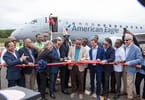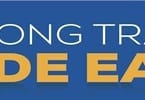Labor issues will take center stage in the airline industry in 2009, with conflicts simmering at most major carriers.
The world’s two largest airlines will receive particularly keen attention. Delta, a largely nonunion carrier that merged with heavily unionized Northwest, could face a half-dozen union representation elections in 2009, as the Association of Flight Attendants and the International Association of Machinists approach its various work groups.
At American, which worked hand in hand with its unions to avoid bankruptcy in 2003, cooperation has given way to antagonism. Contracts with all three of the carrier’s major unions became amendable April 30, and the parties have requested federal mediation in every case.
In general, concessionary contracts — signed during the series of bankruptcies that followed the Sept. 11 terrorist attacks — are expiring or, in the case of United, will expire at the end of 2009.
“I don’t think you will find any airline employee at any company that’s happy these days,” says Joe Tiberi, spokesman for the IAM, the largest airline union. “Since 2001, employees have been forced to subsidize bad management decisions and bankruptcies. Those contracts begin coming up for renewal in 2009, and employees expect to see a return on their investment.”
President-elect Barack Obama’s victory could alter the tone at the National Mediation Board, says Corey Caldwell, spokeswoman for the Association of Flight Attendants.
The NMB presides over a series of steps that must occur as airlines and railroads negotiate contracts. A final stage is the board’s declaration of a 30-day cooling-off period, after which unions are free to strike. “It seems that over the past several years, mediators have been reluctant to get to the (final) stage,” Caldwell says. “The impact has been to not bring pressure to the corporate side. The balance of power needs to return to the process, which has worked in the past.”
As for pilot negotiations, the rancorous relationship between American and the Allied Pilots Association is, for the moment, the hot spot in airline labor relations.
In the latest of a series of unusually strident pronouncements, the union has challenged the airline’s application for joint antitrust immunity with its trans-Atlantic partners and, this month, withdrew from the Aviation Safety Action Program. ASAP is a widely praised joint effort by pilots, airlines and the Federal Aviation Administration to enhance aviation safety by allowing pilots to report problems and incidents without penalty.
The APA charged that American used the program to discipline pilots for inadvertent safety lapses, putting their jobs at risk, The Associated Press reported. Subsequently, pilots at US Airways dropped out. Pilots at Delta and Comair had dropped out in 2006.
While the unions acted independently, their efforts have created an impression that safety is being used as a negotiating tactic. “Using safety as a chip at the bargaining table is unconscionable,” acting FAA administrator Robert Sturgell said recently, in a prepared statement. “These voluntary reporting programs are crucial to safety, and it’s disappointing to see them cast aside at a time when they’re needed most.”
At US Airways, according to U.S. Airline Pilots Association spokesman Scott Theuer, the airline has sought to dilute the immunity provisions, continuing to maintain that a pilot who reports an incident to ASAP can still be disciplined if a second party — such as another worker or an air traffic controller — reports the same incident.
Theuer says the “dual-source reporting issue” has lingered for years, threatening continuation of ASAP. “This has absolutely nothing to do with negotiations,” he says. “The FAA’s characterization that pilots are using safety as a bargaining chip is offensive.
The issues are generally similar at all the carriers that have withdrawn, Theuer says: “We’re all in the same boat: Thousands upon thousands of pilots have reached this conclusion. We want to be able to report minor mistakes without fear of punishment.”
USAPA, he adds, “is working to establish new language that addresses our concerns.” In the meantime, USAPA encourages pilots to use a parallel reporting system by reporting incidents to NASA, which provides immunity in terms of FAA violations but not in terms of company policies.
At Delta, although pilots have recently been consumed by merger negotiations, restoring ASAP is a high priority, says a union spokeswoman. Pilots and the carrier “were unable to come to agreement on processing issues, hence the program was suspended,” she says. “The union is looking forward to reanimating very soon.”
Comair pilots withdrew following a ruling by a federal judge that the carrier had to provide ASAP data following the 2006 crash of a Comair flight at Lexington Blue Grass Airport. The ruling was widely opposed by the airline industry: Comair, other carriers, the FAA and ALPA all objected, but to no avail.
Aviation consultant Robert Mann says the APA’s withdrawal from ASAP stands out because it “reflects a complete breakdown of trust” between American and its work groups, partially as a result of various management compensation efforts. “It’s not just pilots,” he says. “It’s every one of the groups.”
In a recent interview, Jeff Brundage, American’s senior vice president for human relations, said that being first in the current round of pilot contract talks has worked to the carrier’s disadvantage.
“Historically, pilot contract talks have followed a pattern,” he says. “When a contract comes open, and someone has gone before, you attempt to get to that higher standard. But our pilots are the highest paid in the industry, and there’s no one else we can (compare) to.” He says American is seeking productivity improvements “so we can protect our above-market pensions and benefits.”
One effect of the harsh tone at American has been to highlight the contrast with Delta, which enjoys a generally favorable relationship with its pilots. That relationship has made Lee Moak, chairman of the Delta chapter of the Air Line Pilots Association, the industry’s most important labor leader. In general, Moak’s view is that a profitable airline leads to better pilot careers.
At a recent investor conference, Delta CEO Richard Anderson proclaimed: “We have competitors that can’t sit in the same room with their pilots, and we did three collective bargaining agreements in 2008.” He referred to a failed negotiating session a week earlier, when American pilots walked out on company representatives
WHAT TO TAKE AWAY FROM THIS ARTICLE:
- Airline Pilots Association spokesman Scott Theuer, the airline has sought to dilute the immunity provisions, continuing to maintain that a pilot who reports an incident to ASAP can still be disciplined if a second party —.
- Delta, a largely nonunion carrier that merged with heavily unionized Northwest, could face a half-dozen union representation elections in 2009, as the Association of Flight Attendants and the International Association of Machinists approach its various work groups.
- In the latest of a series of unusually strident pronouncements, the union has challenged the airline’s application for joint antitrust immunity with its trans-Atlantic partners and, this month, withdrew from the Aviation Safety Action Program.






















